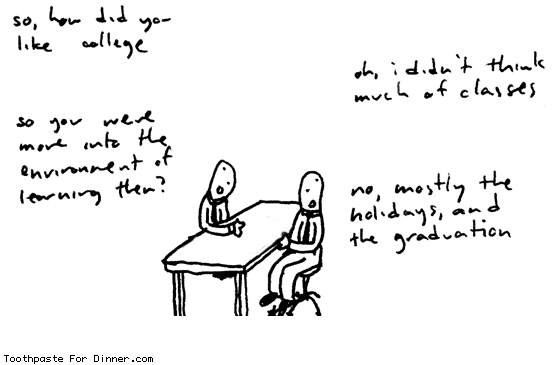 Food production literally deals with a restaurant's, uhhh, production of food. Richard introduced the concept of the "production schedule" or "prep sheet" -- a document in which everything that needs to be done to create the menu is laid out in a schedule with quantities, sometimes in a format that people can update and pass along, like a laminated sheet that can be written on with dry erase markers.
Food production literally deals with a restaurant's, uhhh, production of food. Richard introduced the concept of the "production schedule" or "prep sheet" -- a document in which everything that needs to be done to create the menu is laid out in a schedule with quantities, sometimes in a format that people can update and pass along, like a laminated sheet that can be written on with dry erase markers.Today's Production = Forecast + Safety Factor - Carry OverWhat is produced today is determined by a prediction of how much is going to sell, usually based on year-to-year records, plus a bit more to ensure one doesn't run out during service. Food is only considered a cost when put into production; while in storage, it is a cost, sure, but what is in storage is in bulk -- you may have enough onions in there for a day, a week, a month. What is "pulled" out of storage for the day is accounted for as part of the daily food cost, which can be calculated against the daily income to create all sorts of wonderful figures, like OPEC:
Opening inventory + Purchases - Ending Inventory = Cost of foodWe also did a quick overview of restaurant theft. What's the second most often stolen? Liquor and booze. I asked what the 1st most stolen thing was -- pizza, flatware, soda? Money: Duh! Richard reviewed the idea of giving limited numbers of people the ability to pull out liquor, stamping everything to show it belongs to the store, etc etc. More on that later.
We watched another "Opening Soon" video, this time of a restaurant that is literally down the street from the school. Righteous Urban Barbecue (R.U.B.) looks like an interesting joint. Turns out it took 3 years before the owner could find investors to put up $500K to get it open; he just barely opened before totally running out of money. Chaos, hurt feelings, drama -- it all sounds vaguely familiar to me. I hear he is now opening up several more to form a mini chain. I gotta go and get a bite there.
The last part of the class was dedicated to interviewing candidates of a position. The resume is what they want you to know -- it can be a good tool to discriminate the wheat from the chaff, but it also can be faked. The application is what you want to know of them -- it's of the moment, and harder to fake. The interview is when the actual hiring happens -- and most interviewers know within the first 5 minutes whether they will hire the candidate.
Negotiating pay is a tricky situation, because whoever mentions the first number is in the weaker position. The employee has a minimum at the bottom, what they want at the top, and what they'll settle for in the middle. The employer has what they want, their max and what they'll settle for in the middle. The two parties can soft pedal it back and forth, but in the end, the employer can just stare the employee in the eye and say, "Look, enough. What do you want?"






No comments:
Post a Comment